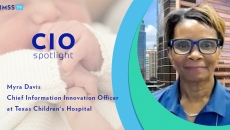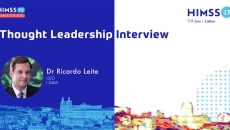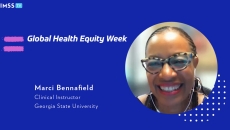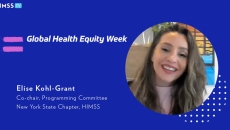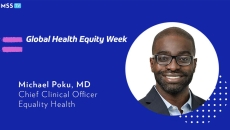Videos
With the unique title of chief information innovation officer, Davis takes a forward-thinking approach to tech advancement. She discusses IT opportunities of standing up a new hospital, as well as provider and patient experience and AI initiatives.
According to I-DAIR's Dr Ricardo Leite, we can reduce the burden of disease by focusing our limited workforce on things we can fix. Going digital makes this possible, so we can shift from "disease systems" to "health systems".
Electronic health record market, policy and funding variables have historically left behavioral health behind, but there is movement on all fronts, says Alisa Chestler, chair of the data protection, privacy and cybersecurity Team at Baker Donelson.
Marci Bennafield, clinical instructor at Georgia State University's health informatics program, explains that, with 97% of American adults now owning a cell phone, there are more ways to intervene in health issues and lower disparities.
The chapter looks at how individuals are engaging with their care to incorporate the patient's perspective into health equity initiatives.
Dr. Michael Poku, chief clinical officer at Equality Health, talks tech needed to successfully tackle inequity, the benefits of investment in independent primary care physicians and how providers can work on the costs of health inequities.
The CIO, who is also an associate dean at Stanford University School of Medicine, discusses AI and innovation projects his team has been working on, where he’s prioritizing strategic IT investments, and some emerging technologies that have him intrigued.
Lynn Carroll, COO of HSBlox, discusses enterprise-level capabilities required for critical inputs into SDOH and other core processes, and the role of AI and machine learning to target the most vulnerable individuals.
Health plans can begin by collecting data on race and ethnicity from their members, says Leah Dewey, VP of clinical and consumer engagement operations at Cotiviti.
Socially at-risk patients need equity in their care. The HEI is to incentivize contracts for plans to perform better for these patients, says Christie Teigland, vice president of research science and advanced analytics at Inovalon.
